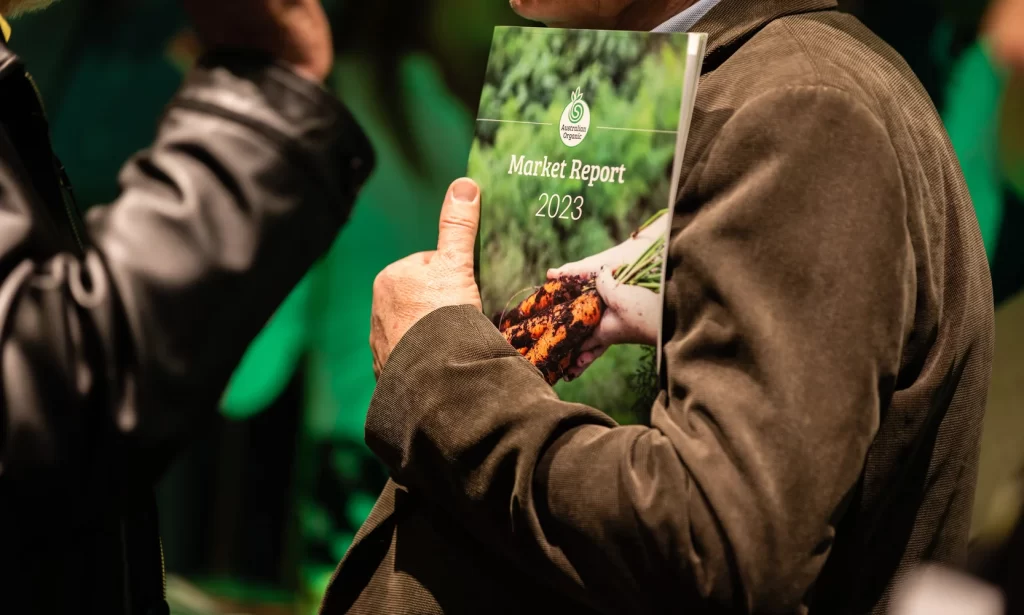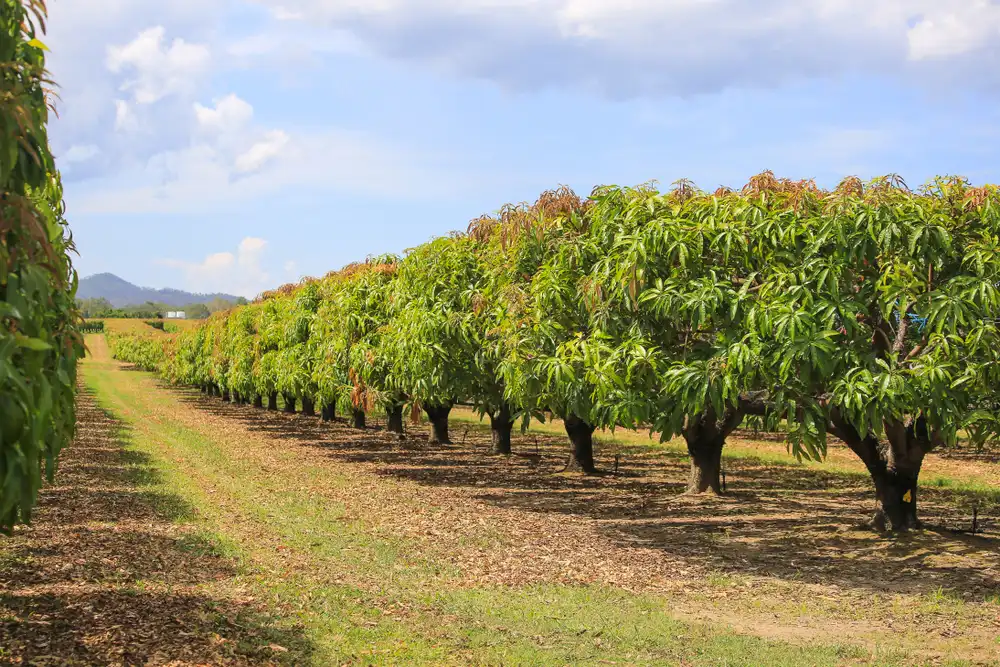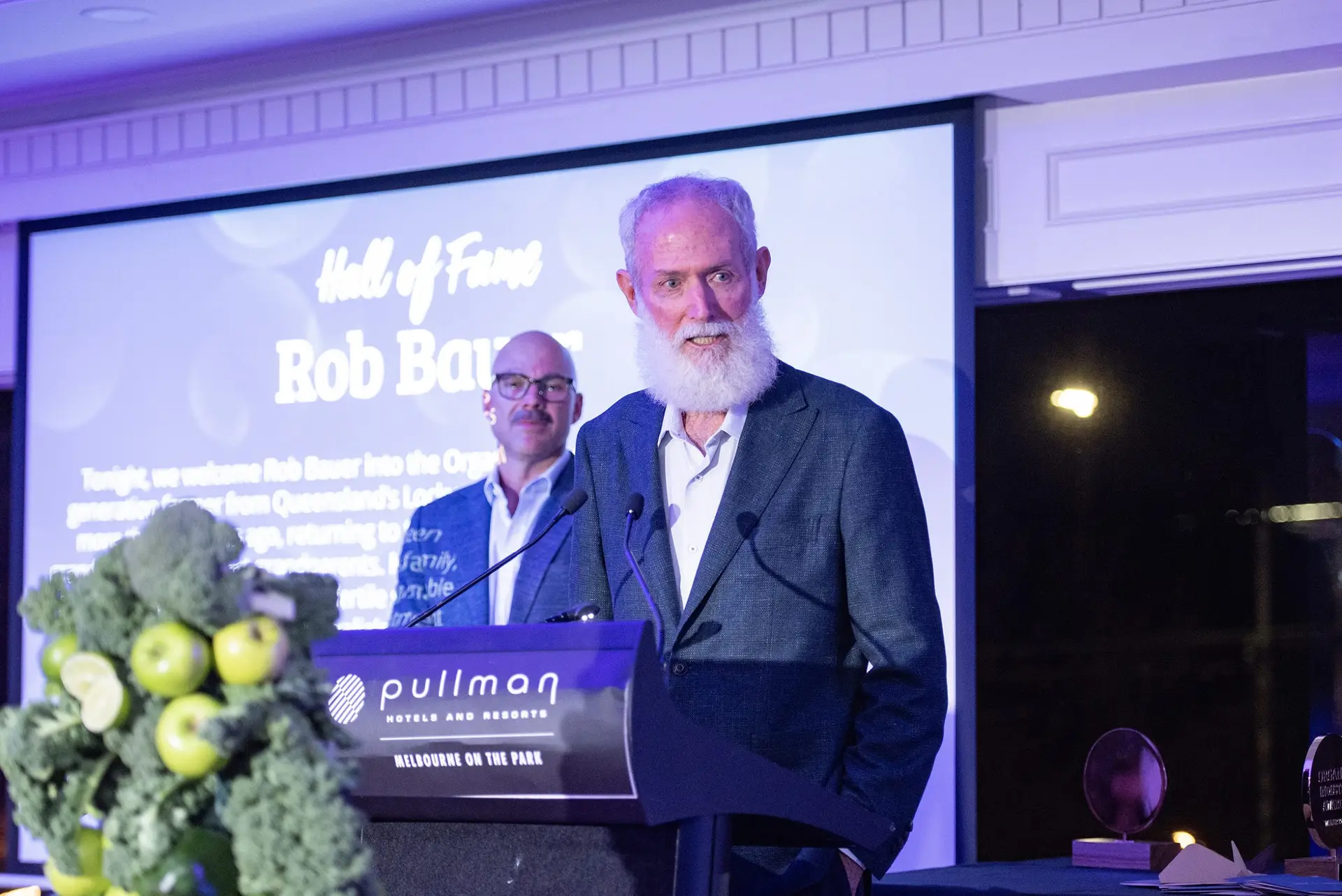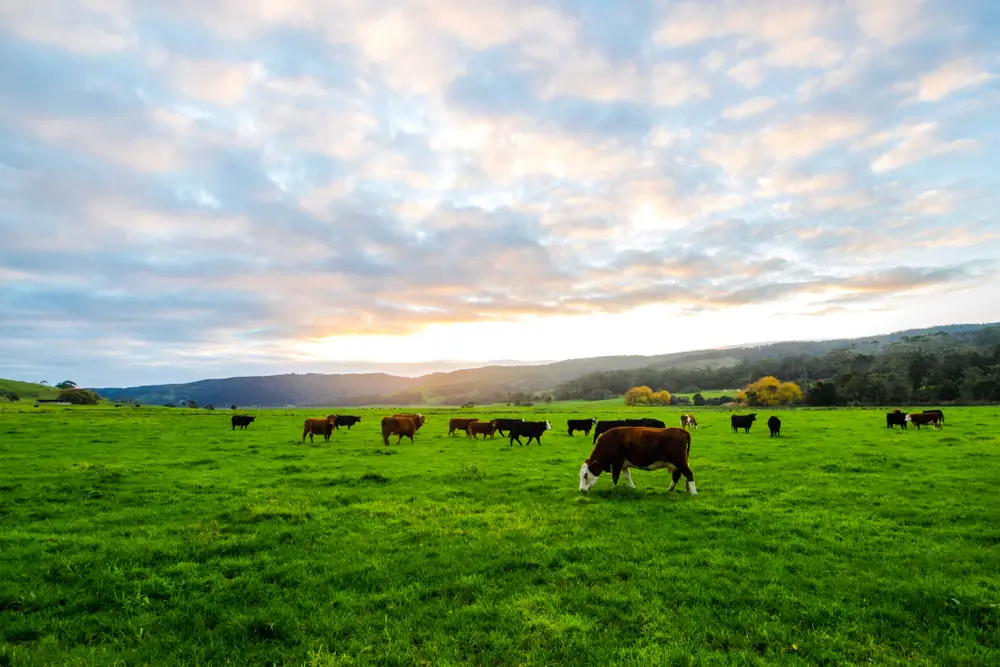Key points:
- 53m hectares of certified organic farmland (70% of global total)
- $851m direct economic benefit to the Australian economy ($2.6b indirect benefits)
- 12,500 full-time jobs and supports more than 22,000.
New data reveals Australia leads the world in organic farmland, surging in the past two years to 70% of certified organic land globally. Despite this, the industry still lags on key market indicators, highlighting the need for regulatory reform to support local producers.
The Australian Organic Market Report 2023 shows there are 53 million hectares of certified organic farmland across the country (up from 35.7 million hectares reported in 2021), highlighting increasing confidence in the industry and the value of certification.
The report, commissioned by peak industry body Australian Organic Limited (AOL) and conducted by independent consulting firm ACIL Allen, paints a positive picture of the $2.6 billion industry which has experienced a strong post-pandemic recovery.
Overall trust in organic products has increased as more shoppers (78%) say a sustainable lifestyle is important to them, reflecting the broad cultural shift towards choosing healthier and more environmentally friendly products.
Australia’s 3,035 certified organic businesses directly contribute $851 million to the economy – around 0.04% of gross domestic product (GDP) putting the industry ahead of the clothing manufacturing and processed seafood industries. With flow-on effects considered, the value added by the organic industry increases to more than $2.6 billion.
In addition, the direct employment the sector provides nationally equates to nearly 12,500 full-time jobs, a figure which grows to more than 22,000 when flow-on impacts are considered.
While the Market Report details a strong domestic organic market, it highlights the challenges posed by a lack of a national standard and regulatory framework, which limits access to international markets that demand consistency within Australian markets.
This is supported by the latest data released by the Research Institute of Organic Agriculture (FiBL) and IFOAM – Organics International in their joint report ‘The World of Organic Agriculture: Statistics and Emerging Trends 2023’.
Despite boasting the majority of global organic farmland, Australia has only a 1.36% share of worldwide organic retail sales, with 70 countries currently exporting more organic product to Europe and the US.
As outlined by ACIL Allen in the Market Report:
“US Department of Agriculture (USDA) organic certification is essential for Australia to export to the US and to meet US demand for organic products. However, this duplicates the certification costs for Australian exporters, who must already be certified under an approved Australian scheme in order to export. This highlights the need for an Australian national domestic regulatory framework and regulatory equivalence in order to remove barriers to further growth in this large and growing market.”
AOL Chief Executive Officer, Niki Ford, said this year’s report highlights the value of the Australian organic industry and calls on decision-makers to support producers and unlock the economic potential of Australia’s organic industry.
“The data outlined in this report shows the strength of organics in Australia, an industry built by operators and consumers who believe organic represents a net positive for our world,” Ms Ford said.
“In the eyes of these forward thinkers, the benefits of organic truly outweigh the costs.
“It also highlights the increasing recognition of certification marks including the Australian Certified Organic Bud trademark logo by Australian consumers; proving that Australian consumers are demanding truth in labelling and are supportive of the move towards a consistent domestic standard.”
The Australian Organic Market Report 2023 is available to purchase here.
Media enquiries:
Matt Wordsworth
[email protected]
0404 029 241
Tim Vetter
[email protected]
0439 681 793





